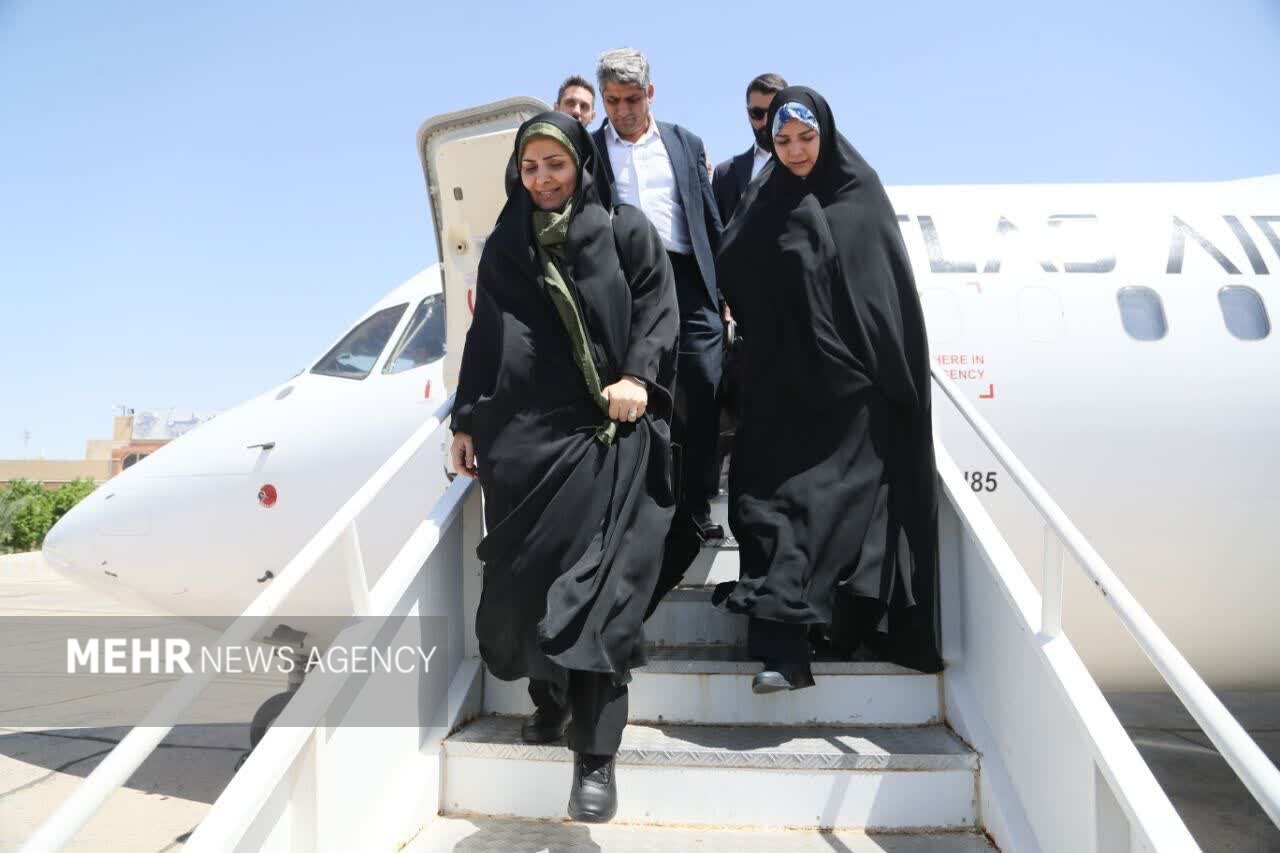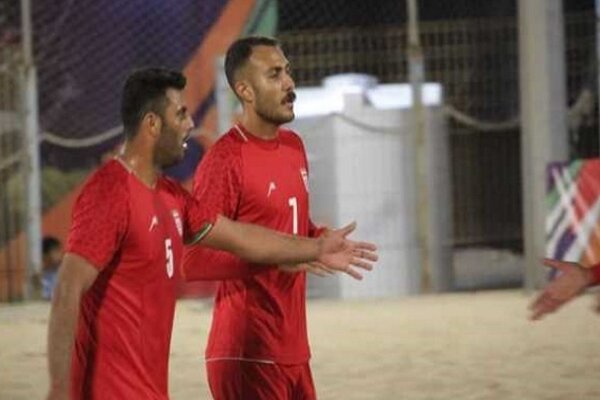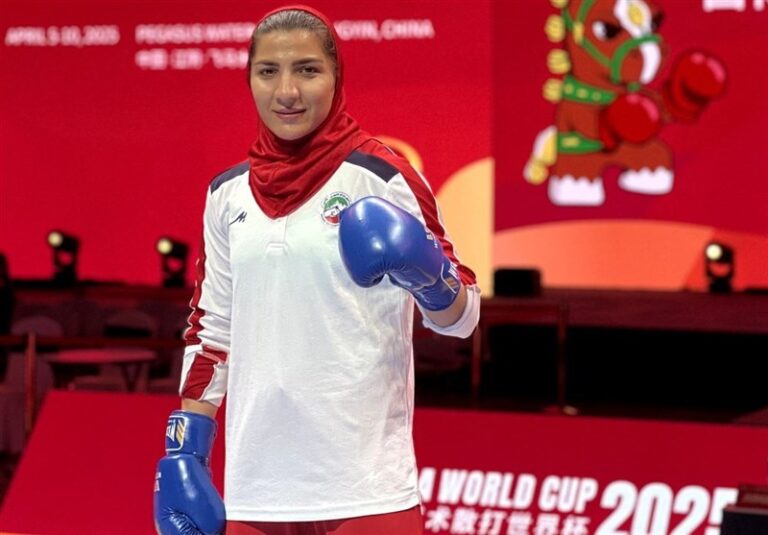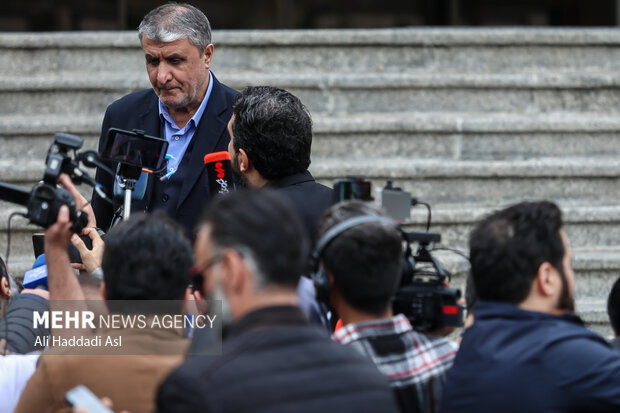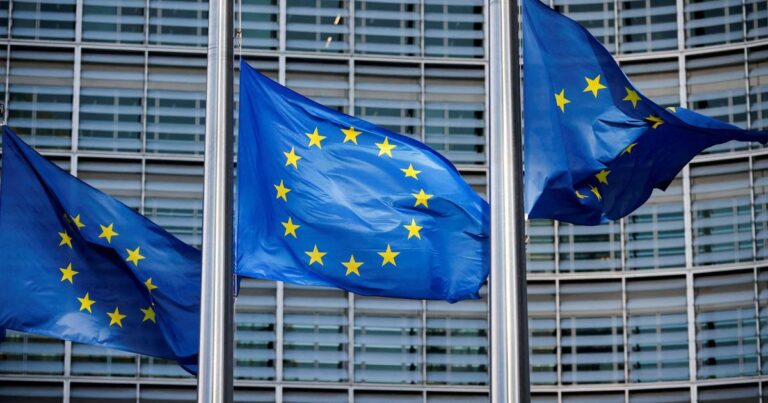Iran’s Roads Minister Strengthens Transport Cooperation with Iraq During Key Visit
In a significant move to strengthen bilateral transport relations, Farzaneh Sadegh, Iran’s Minister of Roads and Urban Development, landed in Iraq on Sunday. Her visit aims to advance key transportation projects, notably the Shalamcheh–Basra railway, and to enhance facilities for pilgrims traveling to Iraq for the upcoming Arbaeen pilgrimage.
Upon her arrival at Baghdad Airport, Sadegh received a warm welcome from Iraq’s Deputy Minister of Transport along with Iran’s Ambassador to Iraq. This visit marks a pivotal moment in fostering closer ties between the two nations in the transportation sector.
During her stay, Sadegh is scheduled to engage in crucial discussions with several high-ranking Iraqi officials, including:
- Prime Minister of Iraq
- Minister of Transport
- Minister of Interior
The agenda for these meetings will focus on:
- Enhancing cooperation between Iran and Iraq.
- Reviewing the current status of bilateral relations.
- Evaluating the progress of transportation projects, with a special emphasis on the Shalamcheh–Basra railway.
- Ensuring the efficient organization of the Arbaeen pilgrimage, which attracts millions of visitors.
The Shalamcheh–Basra railway project is particularly significant, as it aims to facilitate smoother travel for pilgrims and improve trade connectivity between the two countries. The project is part of a broader effort to enhance infrastructure and transport links in the region.
In recent years, the Arbaeen pilgrimage has grown exponentially, drawing millions of Shia Muslims who travel to the holy city of Karbala in Iraq. This event poses logistical challenges, making the improvement of transport facilities essential.
Iran and Iraq share a long history of cultural and religious ties, and this latest initiative underscores their commitment to strengthening these connections through improved transport infrastructure. By focusing on these key projects, both nations aim to ensure that the pilgrimage experience is safe, efficient, and welcoming for all participants.
In addition to transport discussions, Sadegh’s visit highlights the importance of collaboration in various sectors, including trade, security, and cultural exchange. The meetings are expected to pave the way for future projects that could further enhance bilateral relations.
As part of the discussions, Sadegh is also likely to address challenges faced by pilgrims, including border crossing procedures and transportation availability. By tackling these issues head-on, Iran and Iraq can work together to create a seamless experience for the millions who partake in this sacred journey each year.
The Iranian government has continuously emphasized the need for improved transportation infrastructure to support religious tourism, and the Shalamcheh–Basra railway is a significant step in achieving this goal. By facilitating easier access to religious sites, both countries stand to benefit economically and culturally.
In conclusion, Sadegh’s visit to Iraq is a crucial step towards enhancing Iran-Iraq transport relations and ensuring the smooth organization of the Arbaeen pilgrimage. With high-level meetings planned and a focus on key transportation projects, the groundwork is being laid for a stronger partnership that can benefit both nations for years to come.
As discussions progress, the outcomes of these meetings will be closely monitored by stakeholders in both countries. The potential for improved travel experiences for pilgrims and enhanced trade opportunities cannot be overstated, making this visit a landmark event in Iran-Iraq relations.
